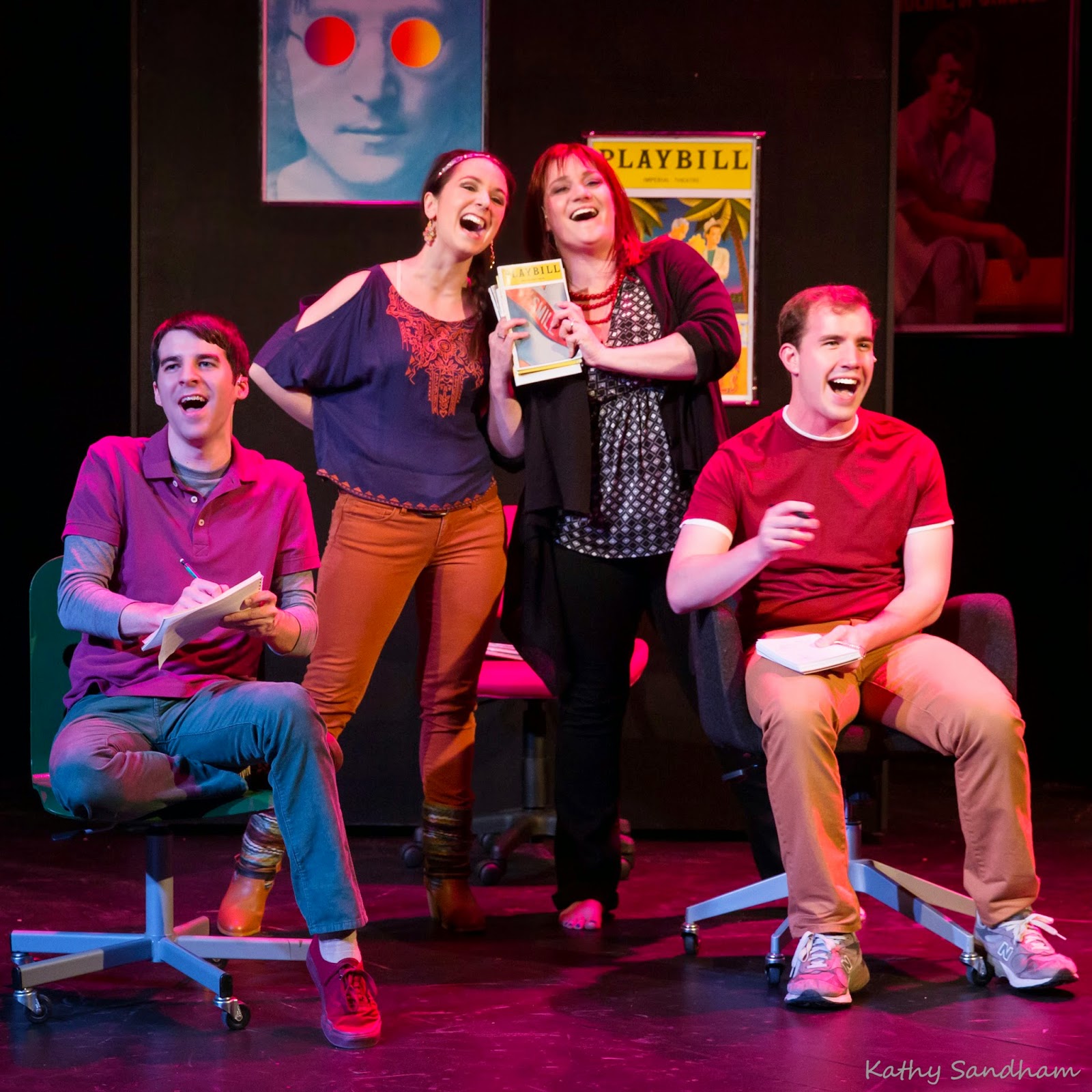Here
are the 12 Days of a Conni Christmas, jammed into 5 days because there are only
5 more days to see this amazing, delicious compendium of insanity before it
goes away forever.
On
the fifth day of Christmas, Conni gave to me: A naked doctor running through
the audience and mushroom and pumpkin-ricotta tartines. Served by the actors,
who talk to you, weirdly.
On
the fourth day of Christmas, Conni gave to me a woman holding a goose and a
“Bus That Table” Contest among the patrons. And a carrot-ginger soup that’s so
good you will be tempted to trample small children to get seconds. (Okay,
mid-sized children.)
On
the third day of Christmas, Conni gave to me Four helpful nurses and a deer
shot before the salad course, which consists of a herbed fennel and apple
salad. Yum.
On
the second day of Christmas, Conni gave to me a Q & A with Mrs. Robinson,
who is of course an English dude who will likely exchange clothes with a woman
in the audience, or do unspeakable things with a hand mixer. Or he might be the
one serving you the main course of roasted turkey breast with cranberry compote
(or a veggie option), with maple-glazed Brussels sprouts and mashed potatoes.
On
the first day of Christmas, Conni gave to me Goodi Two-Shoes and Sue James and
Messerschmidt and Shihu Shallnotbenamed and Chance Gunner and Little Drummer
Boy. And a drunken pumpkin bundt cake with whipped cream. Lots of whipped
cream. God knows where that whipped cream will end up.
You
have five more days: this Wednesday through Sunday the 21st. Tarry
not. You’ll never experience anything else like this again, and also end up
with a full stomach and a nice buzz (You also get table wine with your ticket.)
And there are plenty of surprises. So, you know, what’s not to love?
Conni’s
Avant Garde Restaurant
Through
December 21 at Cleveland Public Theatre, 6415 Detroit Avenue, 216-631-2727.
















